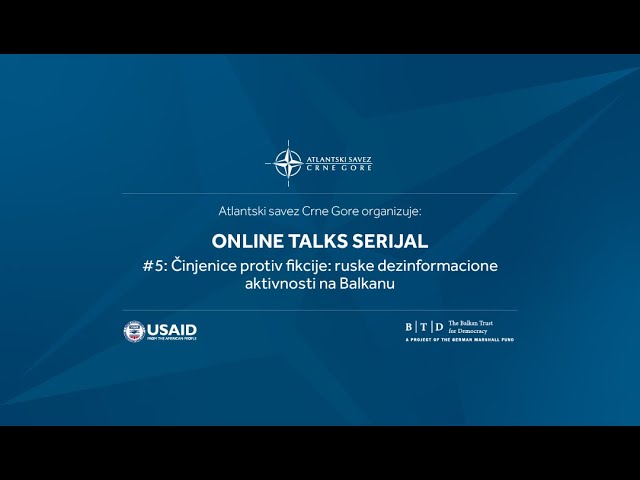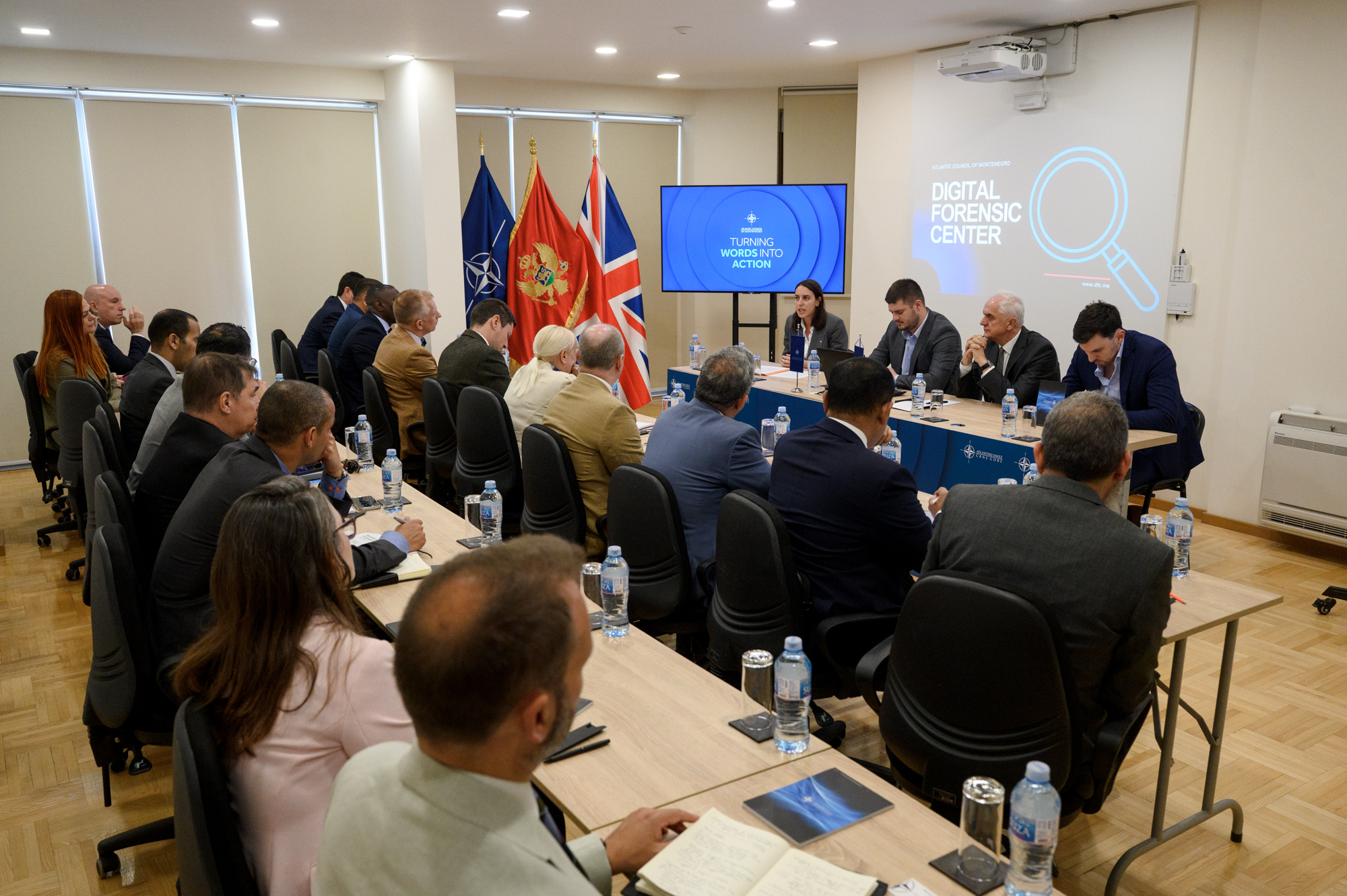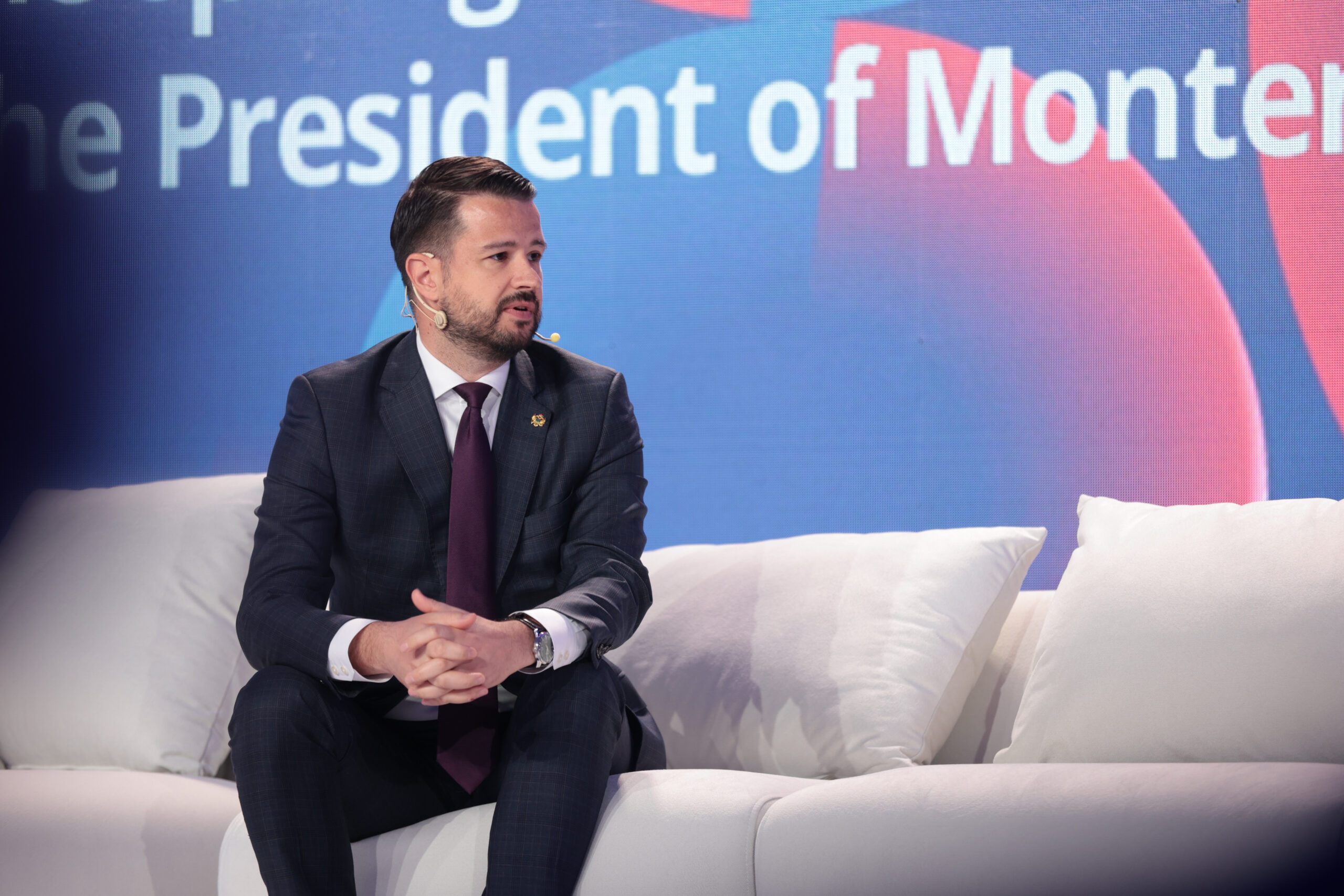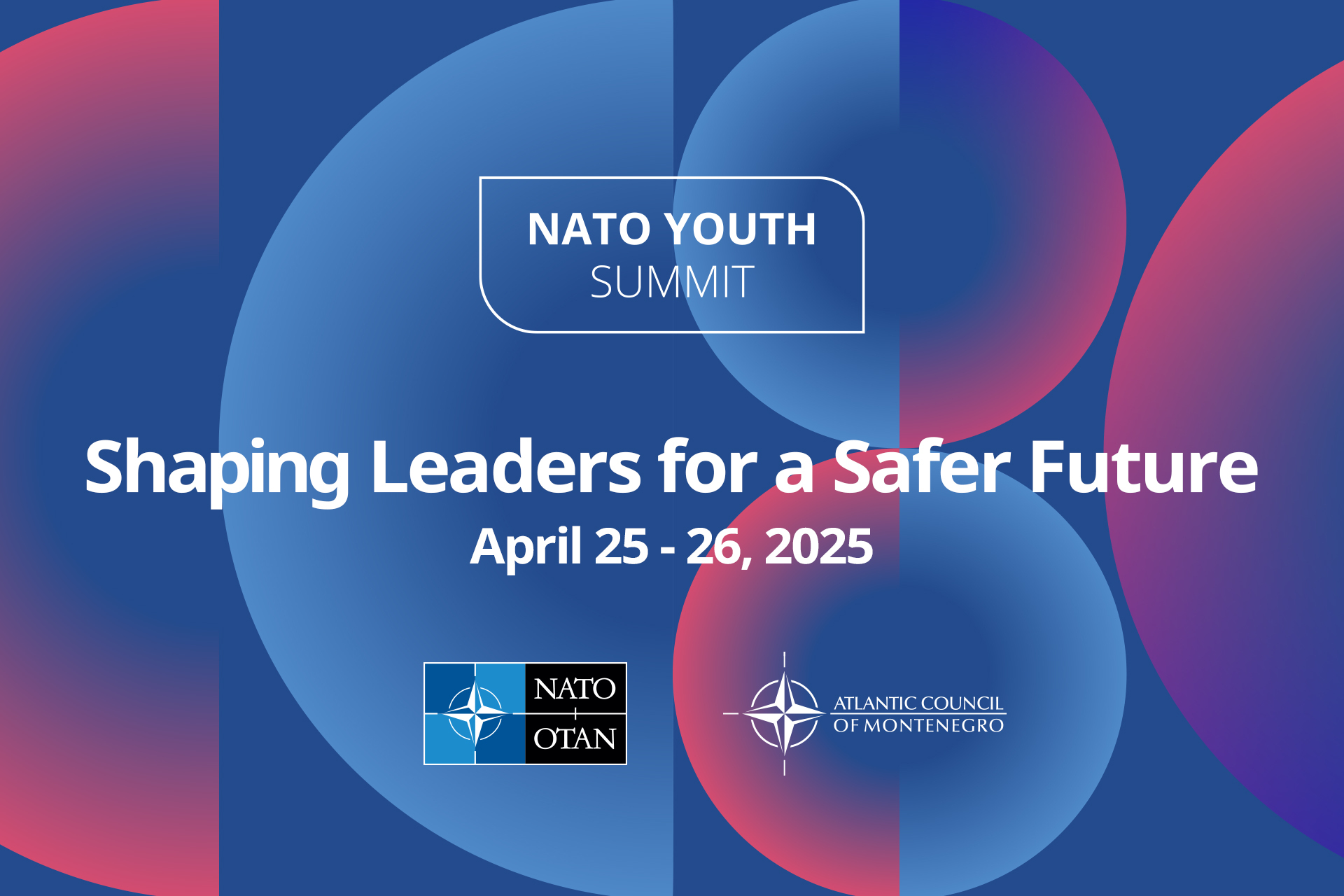The events in 2022 showed a greater degree of readiness of the West to oppose Russian hybrid action, is the conclusion from the Online discussion organized by the Atlantic Council of Montenegro.
Ivana Stradner, Advisor to the foundation for the Defense of Democracies and a fellow at the American Enterprise Institute, and journalist Biljana Jovicević participated in the panel on the topic of Russian disinformation activities in the Balkans. The panel was moderated by Milan Jovanović from the Digital Forensic Center.
Ivana Stradner said that Russia has not lost the information war, pointing to the offensive information operations that the country is conducting around the world, in regions where its strategic interests exist. She stated that Russia conducts its information operations in Africa and Asia, but also in the United States and Europe. Information warfare exists in the Balkans and can be very dangerous because it completely polarizes society and raises tensions that could further escalate, Stradner said.
She also pointed out the specificity of the Russian understanding of hybrid warfare, which implies a combination of information operations and kinetic use of force that, according to her, was clearly shown on the example of Ukraine. In that context, she especially emphasized the implementation of a hybrid strategy within Russia itself, in which, as she assessed, there is media darkness. Stradner believes that Vladimir Putin uses such an internal environment to achieve long-term goals of Russia’s foreign policy – delegitimization of NATO, overthrowing the international liberal order and establishing a multipolar world where Russia would sit at the same table with the United States and China.
Speaking about the Western Balkans, she pointed out that Russia does not aim to occupy the region militarily, but to occupy its information space. In order to prevent that, Stradner emphasizes the importance of detecting such influence, but also the existence of will, as well as partner support in its suppression.
From the point of view of the journalistic profession, Biljana Jovićević spoke about the network of Russian media proxies in Montenegro and the region, noting that Russia is much more successful in conducting propaganda in relation to the conventional war. She believes that Russia’s aggression against Ukraine has shown the right editorial policy of some of the most influential media in Montenegro, which are controlled by the funding from Serbia, and which operate in such a small market for political reasons. Jovicević said that Russian influence was indirectly spreading through the Serbian media, whose editorial policy was adjusted to the Russian narrative. Among them, in her opinion, the IN4S portal is leading as a classic Russian-Serbian newspaper that experienced its rise in Montenegro with the mixing of the Serbian Orthodox Church, and Serbian and Russian political actors in internal political events. Other media she cites are the Borba portal, whose editorial policy she sees as similar but less aggressive, as well as Serbian tabloids, which have significant support in Montenegro. She also identifies the media that tried to take a neutral position in the context of the war in Ukraine, but gradually adjusted to the official position of the West, and cites the National Public Service as an example.
Jovicević believes that Montenegro should be viewed as part of a comprehensive Russian strategy for the Balkans, which aims to have an alternative battlefield and, consequently, undermine the political unity of the European Union and NATO. She estimates that this strategy had some success in the case of Montenegro, but that the invasion of Ukraine resulted in regrouping of forces within the European Union and NATO and their significant attention to this area.
Milan Jovanović emphasized that, despite the fact that there is no officially registered Russian media in Montenegro, Russian propaganda is almost equally strong. After Russia’s invasion of Ukraine, the activities of certain media in Montenegro intensified and consistently synchronized with the views of the Russian and Serbian media. Drawing a parallel between the Russian and Serbian media, Jovanović said that, unlike Russia, where there is obviously censorship, in Serbia, despite the free flow of information, tabloids have a great influence on forming the attitudes of citizens. Jovanović concluded that the current global crisis has highlighted the importance of NATO and Montenegrin membership in the Alliance, further highlighting internal weaknesses that reflect Montenegrin political, national and social fragmentation and the continued interference of malignant influence from the outside.









